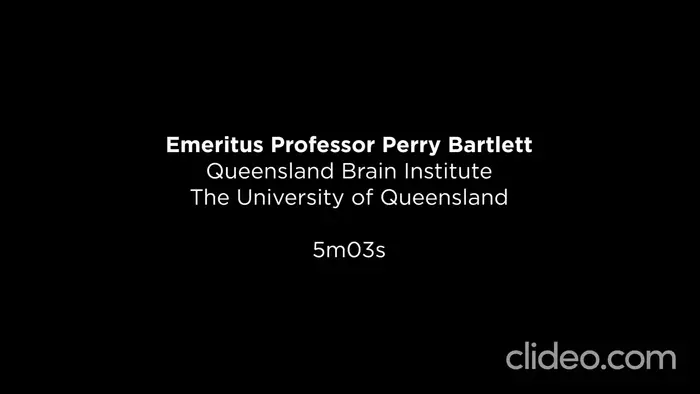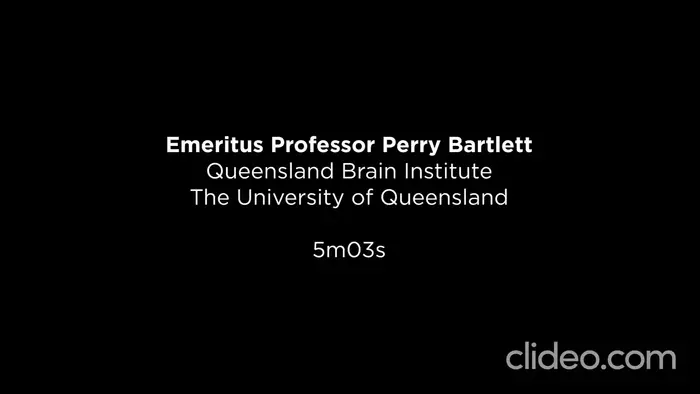A longitudinal study by University of Queensland researchers has found high-intensity interval exercise improves brain function in older adults for up to 5 years.

Credit: The University of Queensland
A longitudinal study by University of Queensland researchers has found high-intensity interval exercise improves brain function in older adults for up to 5 years.
Emeritus Professor Perry Bartlett and Dr Daniel Blackmore from UQ’s Queensland Brain Institute led the study in which volunteers did physical exercise and had brain scans.
Emeritus Professor Perry Bartlett and Dr Daniel Blackmore have shown high intensity exercise boosts cognition in healthy older adults and the improvement was retained for up to 5 years.
Emeritus Professor Bartlett said it is the first controlled study of its kind to show exercise can boost cognition in healthy older adults not just delay cognitive decline.
“Six months of high-intensity interval training is enough to flick the switch,” Emeritus Professor Bartlett said.
“In earlier pre-clinical work , we discovered exercise can activate stem cells and increase the production of neurons in the hippocampus, improving cognition.
“In this study, a large cohort of healthy 65 – 85-year-old volunteers joined a six-month exercise program, did biomarker and cognition testing and had high-resolution brain scans.
“We followed up with them 5 years after the program and incredibly they still had improved cognition, even if they hadn’t kept up with the exercises.”
Ageing is one of the biggest risks for dementia, a condition that affects almost half a million Australians.
“If we can change the trajectory of ageing and keep people cognitively healthier for longer with a simple intervention like exercise, we can potentially save our community from the enormous personal, economic and social costs associated with dementia,” Emeritus Professor Bartlett said.
Emeritus Professor Bartlett and Dr Blackmore worked in collaboration with Honorary Professor Stephan Riek and The School of Human Movement and Nutrition Sciences at UQ.
During the study, the researchers assessed the impact of three exercise intensities:
• Low – predominantly motor function, balance and stretching
• Medium – brisk walking on a treadmill
• High – four cycles running on a treadmill at near maximum exertion
Dr Blackmore said only the high-intensity interval exercise led to cognitive improvement that was retained for up to 5 years.
“On high-resolution MRI scans of that group, we saw structural and connectivity changes in the hippocampus, the area responsible for learning and memory,” Dr Blackmore said.
“We also found blood biomarkers that changed in correlation to improvements in cognition.
“Biomarkers can be useful in predicting the effectiveness of the exercise a person is doing.”
With 1 in 3 people aged 85 years likely to develop dementia, Dr Blackmore said the impact of the research was far-reaching.
“Our finding can inform exercise guidelines for older people and further research could assess different types of exercise that could be incorporated into aged care,” he said.
“We are now looking at the genetic factors that may regulate a person’s response to exercise to see if we can establish who will and who will not respond to this intervention.
“The use of biomarkers as a diagnostic tool for exercise also needs further research.”
The research was published in Aging and Disease.
It receives ongoing support from the Stafford Fox Medical Research Foundation.
Media:
QBI Communications, [email protected], Merrett Pye +61 422 096 049; Elaine Pye +61 415 222 606.
Journal
Aging and Disease
DOI
10.14336/AD.2024.0642
Method of Research
Randomized controlled/clinical trial
Subject of Research
People
Article Title
Long-Term Improvement in Hippocampal-Dependent Learning Ability in Healthy, Aged Individuals Following High Intensity Interval Training
Article Publication Date
9-Jul-2024





